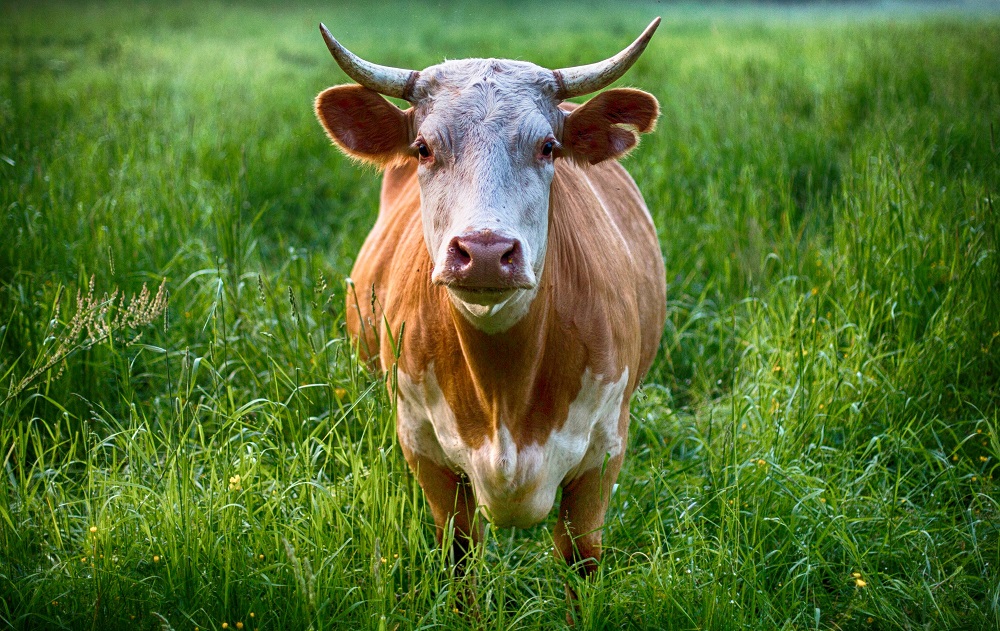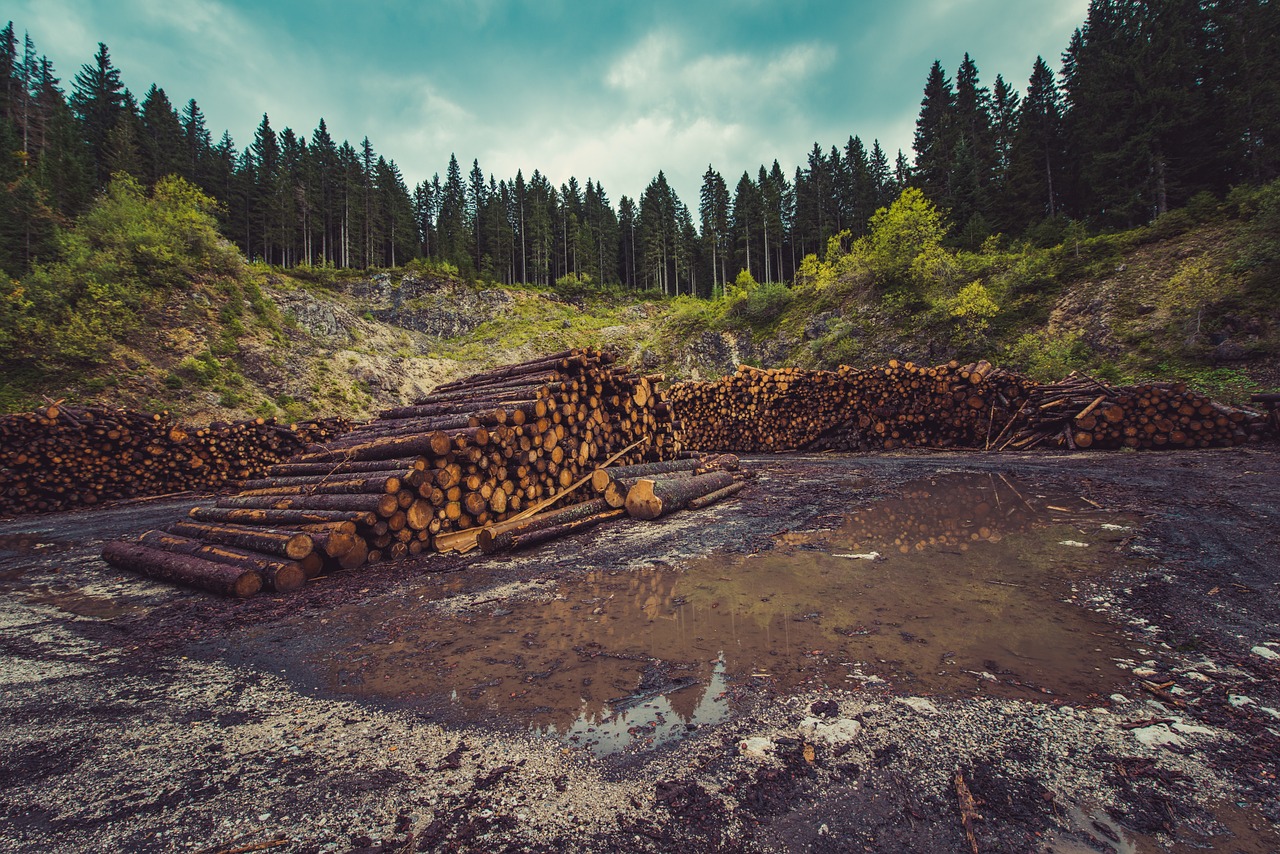
Eating a plant-based lifestyle can do wonders for your health. But did you know that eating plant based foods also lowers your environmental footprint? Animal products are problematic for the environment. Products such as meats and dairy contribute to air pollution, deforestation, and lake degradation. They also use way too much fresh water!
April is Earth month, so we invite you to join us in thinking more consciously about how the food we eat affects our planet’s health. This month, try reducing or refraining from consuming animal products! In addition, we also challenge you to find out where your food comes from and how it affects communities.
So let’s dig in! Keep reading to find out more about what a plant-based lifestyle can do for the environment!
Reduce Harmful Greenhouse Gas Emissions
The meat industry is a major contributor to greenhouse gases. Greenhouse gases deplete our ozone layer and contribute to climate change. According to the USDA, the meat industry–including growing livestock feed–accounts for 30% of global greenhouse gas emissions.
The digestive process of cattle produces methane, a greenhouse gas about 21 times more potent than CO2 emissions! Methane is considered one of the worst greenhouse gases due to its explosive nature and warming effect on our atmosphere. The livestock industry has been observed to produce 37% of methane emissions that occur from human activity. In addition, cattle manure is largely responsible for 65% of nitrous oxide emissions from human activity.
Prevent Deforestation
The livestock industry requires a lot of land. This industry requires land to raise the livestock in addition to the land it takes to produce enough crops to sustain livestock populations. The high demand for cleared land has led to increased deforestation in many countries, primarily countries in tropical regions with year-round growing seasons where companies also seek cheap labor.
Beef cattle production is one of the four major contributors to more than half the deforestation that occurs in the tropics. The effects of this can be observed with the Amazon Rainforest, which continues to suffer from deforestation due to the beef industry, as well as other commodities.
“The production of beef is without question the biggest cause of deforestation in the Amazon, with figures ranging from 65 to 70 percent of all deforestation in the area from 2000 to 2005” –Rainforest Alliance
This type of deforestation can only be mitigated if the demand for beef and dairy products decreases globally. And with so many amazing meat and dairy substitutes available, why not try out some products that are better for your overall health and the well-being of our planet?
Reduce Degradation of Bodies of Water
Many crops used for livestock feed are industrialized crops. That means they are grown as one single crop over many acres of land. This method of growing crops is called monocropping. Monocropping, while it has the advantage of producing a large quantity of one crop, has many downfalls when it comes to environmental stewardship.
Monocropping significantly depletes the soil health of the area being farmed. To compensate for this, farmers use large quantities of fertilizers to help improve the yield of the crop. The fertilizer leeches from the soil and gets swept up in agricultural runoff. The runoff winds up in lakes, rivers, and streams where it causes eutrophication and disrupts the health of the ecosystem. These excess nutrients cause algae blooms in the water which use so much oxygen they end up “suffocating” the lake, killing the fish. The algae also blocks sunlight from reaching the plant life underwater resulting in the death underwater plants.
In addition to harming the wildlife and natural habitat that lakes and streams provide, this also makes the lakes very unappetizing for recreational use. No one wants to take a swim in a green cesspool!
Decrease Freshwater Footprint from Animal Products
Not only are animal products hard on the environment and atmosphere, they also require a large amount of fresh water to produce. Crops that are used for livestock feed generate a large water footprint during growing season. While produce such as vegetables and fruits for human consumption also requires fresh water, the amount of water it takes to raise the crops that sustain livestock is significantly larger.
Let’s take a look at the water footprint of some animal products-
- Beef: 1 pound = 1,847 gallons of water
- Pork: 1 pound = 717 gallons of water
- Chicken: 1 pound = 518 gallons of water
- Butter: 1 pound = 665 gallons of water
- Cheese: 1 pound = 380 gallons of water
- Milk: one 8.5 oz. glass = 31 gallons of water
Now let’s take a look at some plant products-
- Bananas: 1 pound = 95 gallons of water
- Apples: 1 pound =98 gallons of water
- Cucumbers/Pumpkins: 1 pound = 42 gallons of water
- Potatoes: 1 pound = 34 gallons of water
Access to fresh water is a struggle for many developing areas. Fresh water shortages are also becoming a more pressing issue in developed nations. With less than 3% of the Earth’s water available to us as freshwater, we cannot afford to waste so much freshwater on producing meat products that lack nutritional value and waste resources in comparison to their plant-based counterparts.
Beyond the Diet: Investing in Ethical and Sustainable Food Systems
Eating a plant-based diet can significantly lower your environmental footprint. But what about your social footprint? How does one consume ethically? In addition to focusing on plant-based foods, keep in mind the companies that produce the food and what their social impact is.
Support Companies that Empower Communities
It’s all too often that companies find ways to cut costs by exploiting people for cheap labor and mass production in poor conditions. When looking into a company’s supply chain, look for information about who they employ, what the conditions are, and how that business has affected the community. You want to be supporting companies that empower and uplift communities!
What does empowering people and communities through work opportunities look like? Check out this video on one of Kuli Kuli’s moringa suppliers, Pierrette, to find out!
Support Local Markets and Businesses
Local farmer’s markets are a great place to buy produce and other goods! These vendors are local, meaning they aren’t generating a large amount of CO2 emissions to reach the consumer (you!). This is also a great way to support someone in your local community since most vendors at small markets live nearby and grow the produce locally. You can even ask them about their farming methods! This is a great opportunity to learn what elements of sustainability are important to them as a small business owner.
This April, we challenge you to be more conscious of your social and environmental footprint. Try to substitute meat products with plant protein or dairy products with non-dairy alternatives! Making the choice to reduce or abstain from animal products is not only beneficial to your own health but also to the health of our planet.














Thanks so much to the crew of Authors who have published or circulating this laudable literature about Moringa .
Am an Agribusiness Specialist producing, processing and marketing Moringa & Cassava. We are voluntarily training some rural communities so as to improve mal-nutrition at all levels. Due to misconception, we are gradually rolling out the programmes with our limited Capital. With Time and by the grace of our living Lord we will win. We will forward to you some pictures of our products which are purely produced organically. Please keep the good work up.
Great content! This is exactly the sort of thing I was looking for. Thanks for your help 🙂